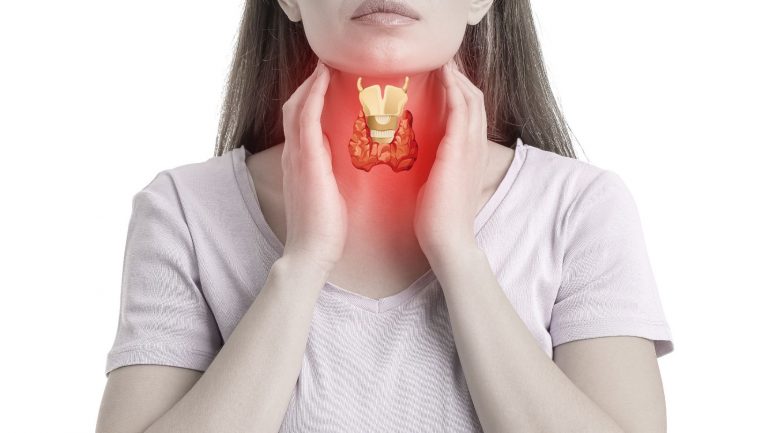Thyroid health is crucial for overall well-being, with the thyroid gland playing a vital role in hormone production and regulation. Hashimoto’s thyroiditis, a prevalent autoimmune disease, poses a significant threat to the thyroid. This article delves into the intricacies of Hashimoto’s disease, its impact on hormone production, and the higher risk it poses for women.
Understanding Hashimoto’s Thyroiditis:
Hashimoto’s thyroiditis is an autoimmune disorder in which the body’s immune system mistakenly attacks the thyroid gland. This assault hampers the gland’s ability to produce essential hormones, impacting virtually every cell in the body. As a result, individuals with HHashimotoexperience symptoms of hypothyroidism, such as fatigue, poor concentration, depression, weight gain, dry skin, and muscle weakness.
Diagnostic Approaches:
Accurate evaluation of thyroid health requires comprehensive testing. Common diagnostic measures include assessing levels of thyroid-stimulating hormone (TSH), free triiodothyronine (T3), free thyroxine (T4), and thyroid antibodies (particularly thyroperoxidase antibodies or TPO). Additional tests like reverse T3 testing and DIO2 gene testing can provide valuable insights. Furthermore, investigating associated problems such as gluten intolerance, food allergies, heavy metal toxicity, and nutrient deficiencies can contribute to a more thorough assessment.
Nutritional Support for Thyroid Health:
A well-balanced diet plays a vital role in supporting thyroid health. Including specific foods in one’s diet can provide essential nutrients that promote optimal thyroid function. Selenium-rich foods like eggs, sunflower seeds, whole grains, and Brazil nuts are beneficial. Iodine, essential for thyroid hormone synthesis, can be obtained from seafood, sea vegetables, and iodized salt. Additionally, zinc-rich foods such as oysters, beef, poultry, beans, nuts, and seeds aid in thyroid function. It is advised to avoid raw cruciferous vegetables and genetically modified soy, opting instead for cooked cruciferous vegetables and non-GMO, whole-food soy options.
Lifestyle Practices for Thyroid Health:
Chronic stress can adversely affect thyroid function. Implementing stress reduction techniques and actively practising relaxation can significantly benefit thyroid health. Exercise, such as aerobic activities, helps stimulate thyroid gland secretion and enhances tissue sensitivity to thyroid hormones. Saunas and steam baths are also useful as they promote detoxification and support weight loss, which can positively impact thyroid function.
Supplements and Medications for Thyroid Support:
Supplements can play a role in supporting thyroid health, particularly when certain nutrients are deficient. Key nutrients include selenium, iodine, zinc, and vitamin D. Additionally, supporting the adrenal glands is essential in cases of adrenal exhaustion or burnout. Collaborating with a knowledgeable healthcare practitioner can help determine individual nutrient needs and design an appropriate supplementation plan. In certain cases, medications may be prescribed to address specific thyroid concerns.
Thyroid Testing:
While thyroid-stimulating hormone (TSH) levels are commonly used for initial thyroid evaluation, they do not provide a comprehensive picture. Additional testing, including free T3, free T4, thyroid antibodies, and the thyrotropin-releasing hormone (TRH) stimulation test, can offer valuable insights. Identifying autoimmune reactions through thyroid antibody testing is crucial for diagnosing Hashimoto’s disease accurately.
Choosing the Right Thyroid Hormone Replacement:
Synthetic T4 medications, such as Synthroid, are frequently prescribed for hypothyroidism. However, they may not be suitable for everyone. Some individuals may benefit from combination hormone treatment involving both T4 and T3 hormones. Armour thyroid, a prescription drug made from dried por
cine thyroid can also be an effective alternative. Finding the right dosage and closely monitoring treatment under the guidance of an experienced physician is crucial for optimizing thyroid hormone replacement therapy.
Conclusion:
Taking a comprehensive approach to address thyroid problems is essential for overall well-being. This involves identifying and eliminating potential causes of thyroid dysfunction, making dietary adjustments, and minimizing exposure to toxins. Nutritional support, lifestyle practices, supplementation, and appropriate medication choices, when necessary, can help optimize thyroid function. Accurate diagnosis through thorough thyroid testing, including thyroid antibodies evaluation, is crucial for tailored treatment. Collaborating with knowledgeable healthcare professionals ensures effective management of thyroid health, leading to improved quality of life for individuals with Hashimoto’s disease.
Note: While the information presented here is based on current knowledge, it is important to cross-verify and update any medical information with the latest research. Consult a healthcare professional for accurate diagnosis and personalized treatment.



